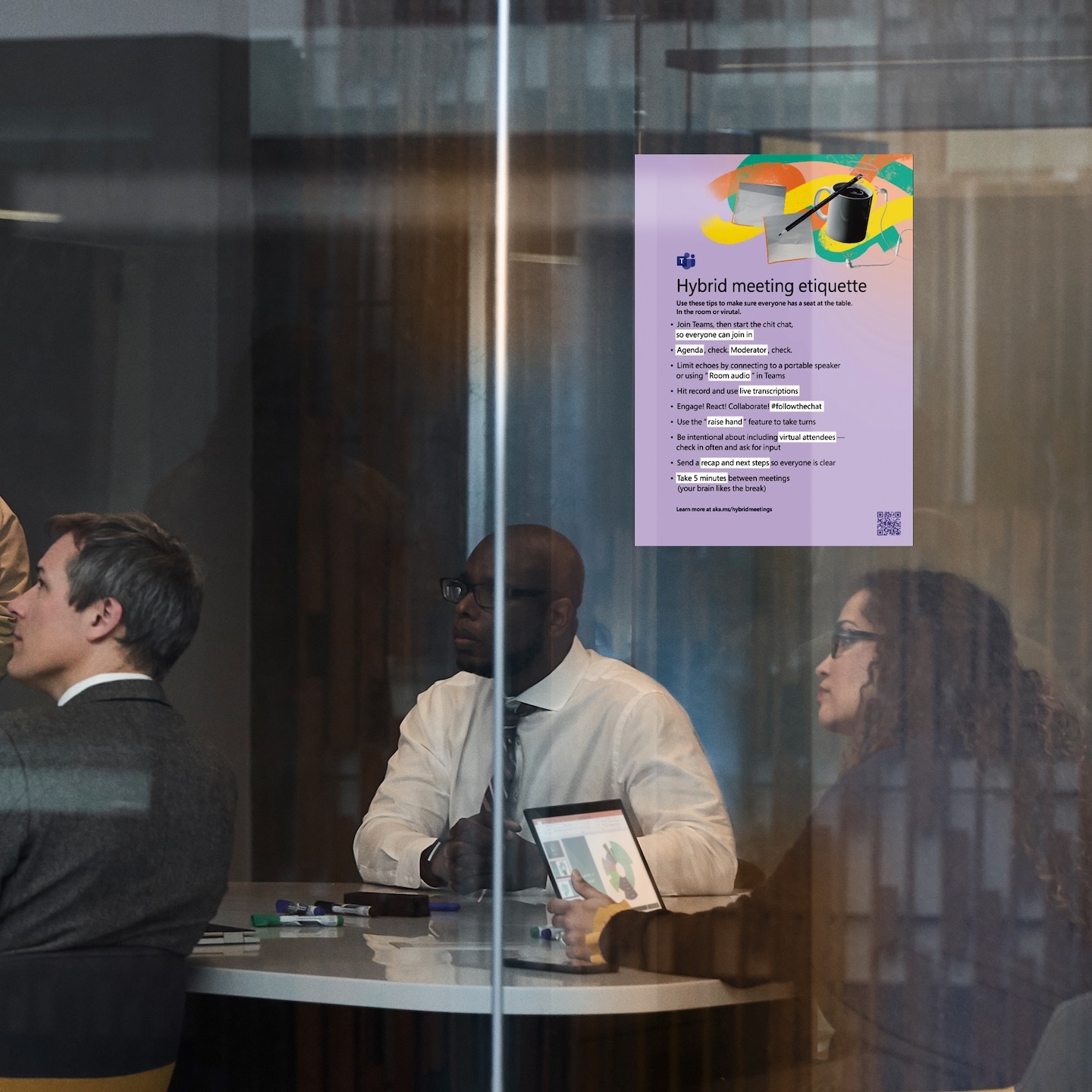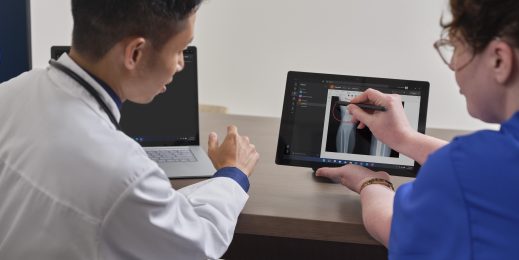
Microsoft announces new research and technology to make hybrid work, work
Second annual Microsoft Work Trend Index report finds employees have a new “worth it” equation, and there’s no going back
Today, Microsoft Corp. released its second annual Work Trend Index report, “Great Expectations: Making Hybrid Work Work.” The company also announced new features across Microsoft Teams, Microsoft 365, Surface Hub and Microsoft Viva to empower hybrid work and address employees’ new expectations for the workplace.
After sitting on the cusp of hybrid work for more than a year, many companies are at a long-awaited inflection point: the lived experience of hybrid work.
One thing from the research is clear: We are not the same people who went home to work in early 2020. The past two years have left a lasting imprint, fundamentally changing how people define the role of work in their lives. The challenge ahead for every organization is to meet employees’ great new expectations head on while balancing business outcomes in an unpredictable economy.
To help leaders navigate the shift, the 2022 Work Trend Index outlines five urgent trends from an external study of 31,000 people in 31 countries along with an analysis of trillions of productivity signals in Microsoft 365 and labour trends on LinkedIn:
-
Employees have a new “worth it” equation. Fifty-one percent of Australian employees say they’re more likely to prioritise their health and well-being over work than they were before the pandemic. And the Great Reshuffle isn’t over: Fourty-eight percent of Australian Generation Z and millennials are likely to consider changing employers in the year ahead, up 6% year over year.
-
Managers feel wedged between leadership and employee expectations. Fifty one percent of Australian leaders say their companies are planning a return to full-time in-person work in the year ahead. Fifty-nine percent of Australian managers say leadership at their companies is out of touch with employee expectations, and 71% say they don’t have the influence or resources to drive change for their teams.
-
Leaders need to make the office worth the commute. 36 percent of Australian hybrid employees say their biggest challenge is knowing when and why to come into the office, yet only 26% of Australian leaders have created team agreements to define these new norms.
-
Flexible work doesn’t have to mean “always on.” After two years, weekly meeting time for the average Teams user (globally) is up 252%, and chats sent per person each week is up 32% — and still climbing. While workday span has increased by 46 minutes, after-hours and weekend work are up 28% and 14%, respectively.
-
Rebuilding social capital looks different in a hybrid world. With 42% of Australian hybrid workers considering a shift to full remote work in the year ahead, companies cannot rely solely on the office to recoup the social capital we’ve lost over the past two years. Forty-three percent of leaders say relationship-building is the greatest challenge of having employees work in a hybrid or remote environment.
“There’s no erasing the lived experience and lasting impact of the past two years, as flexibility and well-being have become non-negotiables for employees,” said Jared Spataro, corporate vice president, Modern Work, Microsoft.
By embracing and adapting to these new expectations, organizations can set their people and their business up for long-term success.
As the company marks five years since the launch of Teams, more than 270 million people rely on Teams for hybrid work.
Making hybrid work work for everyone will require intentional leadership around how, when and where to work — and technology has a key role to play. Today the company is introducing new product innovation designed to improve the hybrid work experience.
-
Available in public preview at the end of the month, Teams Connect shared channels enable collaboration with people inside and outside the organization from a shared workspace.
-
To bridge the gap between digital and physical workspaces, a new meeting layout for Teams Rooms, front row, is now available in preview.
-
New touch-enabled display solutions for Teams Rooms from Neat and Yealink are in the process of being certified for Teams Rooms on Android. These devices combine audio, video, touch display and compute in a single unit — allowing easy deployment and enhanced collaboration experiences. The new AI-powered Microsoft Surface Hub 2 Smart Camera uses automatic framing technology to dynamically adjust your Teams video feed to provide remote team members with a dynamic view of in-room interactions.
-
 The language interpretation feature in Teams enables live interpreters to convert what the speaker says into another language in near real time. The meeting organiser can assign interpreters and select up to 16 source and target language combinations, while attendees will hear the translation.
The language interpretation feature in Teams enables live interpreters to convert what the speaker says into another language in near real time. The meeting organiser can assign interpreters and select up to 16 source and target language combinations, while attendees will hear the translation. -
Microsoft Whiteboard in Teams offers a rich set of new capabilities that bring visual collaboration to life, including collaboration cursors, more than 50 new templates, contextual reactions, and the ability to open existing boards and collaborate with external colleagues in Teams meetings.
-
To improve hybrid brainstorming, completion of action items and making decisions together without having to switch context or apps, Microsoft is introducing Loop components in Outlook mail. RSVPing for a meeting in Outlook now allows attendees to note whether they plan to join in person or virtually.
-
Microsoft is introducing a new offering in Microsoft Teams Phone called Operator Connect Mobile, in partnership with some of the world’s largest telecom operators. This assigns a single business-provided mobile phone number for desktop and mobile devices, making it seamless to move calls across networks and devices with no interruptions.
-
With vibrant and fun styling, over 1,800 new 3D fluent emojis can infuse expression and playfulness into messages. And with the skin tone selector, users have the option to pick emojis that better represents themselves.
-
To support flexible work styles, two PowerPoint experiences, cameo and recording studio, are being brought together. This will make it possible for presenters to deliver presentations with PowerPoint Live in Teams, whether or not they attend the meeting.
-
A new feature called the Inspiration library is coming to Microsoft Viva in public preview as part of the Viva Insights app in Teams. The library is designed to give employees, managers and leaders easy access to thought leadership and best practices from top sources such as “Harvard Business Review” and “Thrive.”
To learn more, visit the Official Microsoft Blog, Microsoft 365 Blog and the new Work Trend Index report.










